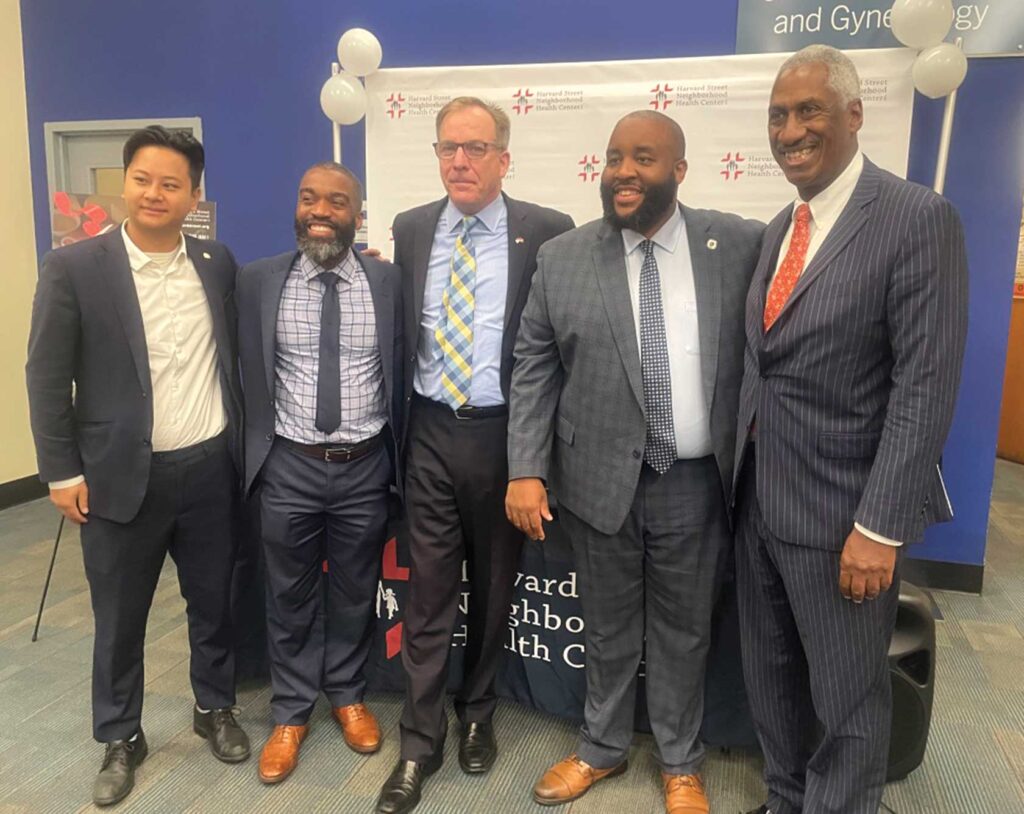Healthy Food Program aims to help diabetes patients buy nutritious foods
Greater Grove Hall Main Streets, Harvard Street NHC partner with Stop & Shop in two-year pilot program

A new program from Greater Grove Hall Main Streets and Harvard Street Neighborhood Health Center aims to provide type 2 diabetes patients who are also food-insecure with financial support to make healthier food choices.
Announced at the end of October, the “Healthy Food Program” will give participants a monthly stipend to shop for nutritious groceries as well as access to expert nutrition advice.
During the two-year pilot phase, the program will enroll 30 Harvard Street Neighborhood Health Center patients who meet the eligibility criteria and give them $100 each month to spend at partner grocery store Stop & Shop. Participants will also work with a nutritionist who will assist them in establishing objectives and monitoring dietary improvements.
“The goal is that the people have more knowledge, more information [not just about] the food that they’re buying with our money, but the food that they’re getting with SNAP and WIC,” said Ed Gaskin, executive director of Greater Grove Hall Main Streets. The program will empower them to make choices that lead to “better medical outcomes.”
In the United States, adults who are food insecure are at significantly higher risk of having one or more chronic diseases, including diabetes, according to the U.S. Department of Agriculture. While health centers like Harvard Street Neighborhood Health Center typically provide clinical care and food access services separately, Gaskin said the program seeks to integrate the two to improve the health of people with type 2 diabetes.
Characterized by high levels of blood sugar, diabetes affects approximately 1 in 10 Americans, according to the Centers for Disease Control and Prevention, with the majority having type 2 diabetes, in which the body produces less insulin than necessary. The disease is most common in Black, Native American and Hispanic adults, affecting 12 to 13% of these groups.
Beyond diabetes, inequalities in the health care industry persist. Gaskin, who has done work in the “Food is Medicine” space, which takes a nutrition-first approach to addressing chronic diseases, said he sees the new “Healthy Food Program” as a crucial step toward confronting those inequalities and potentially applying the methodology to other arenas.
“If you’re going to deal with health care disparities and health care inequity,” he said, “then you have to deal with food because food is the largest and primary social determinant of health.”
Funded by the Boston Public Health Commission, the collaboration between Greater Grove Hall Main Streets and Harvard Street Neighborhood Health Center makes use of Stop & Shop’s Guiding Star program, which assigns grocery store foods one, two or three stars based on whether they offer “good,” “better,” or “best” nutrition. The star-ratings, found on labels in stores, make it easier for participants to identify and choose foods that are most beneficial for their health.
Patients also have the option to attend additional nutrition-oriented activities and will subsequently receive an additional $50 for their monthly groceries.
Unlike food pantries, which are often open intermittently and tend to have limited food options, the Healthy Food Program allows participants to shop whenever they need to and gives them freedom and agency over their food choices, said Sophie Walton, a registered dietitian nutritionist at Harvard Street Neighborhood Health Center and the nutritionist liaison for the program.
Walton will help identify patients who are a good fit for the program, assist them in setting goals and check in with them monthly about their progress.
Initially, the program leaders had considered giving patients pre-assembled baskets with diabetes-friendly foods, Walton said, but, considering that everyone has different preferences, they opted for a more flexible system that also offers educational benefits.
It “allows patients to use the information that they learn from the sessions, from what they learn about their diabetes, and then being able to go and pick out better foods. … So instead of just being handed food and saying, ‘Okay, this is good for you. Eat it,’ they’re actually able to apply what they’re learning, but keeping their cultural preferences in mind as well,” she said.
Because diabetes is dependent on diet, food-insecure patients are often at a disadvantage when it comes to managing their symptoms.
“If you only have X amount of dollars to buy food for the month, and the cheapest thing you can get is white rice and potatoes, that’s what you’re going to buy. And ultimately, that’s not the type of food that is going to be best for your body and be good for your sugar levels,” Walton said.
Diabetes patients are recommended to eat leafy or nonstarchy vegetables, lean proteins, and high-fiber grains like quinoa, Walton said, which can typically be more expensive than less ideal high-carb options.
“If we can get people extra funds, to specifically say, ‘Okay, get these types of healthier, low-carb foods,’” Walton said, “I think that will have a real difference.”






